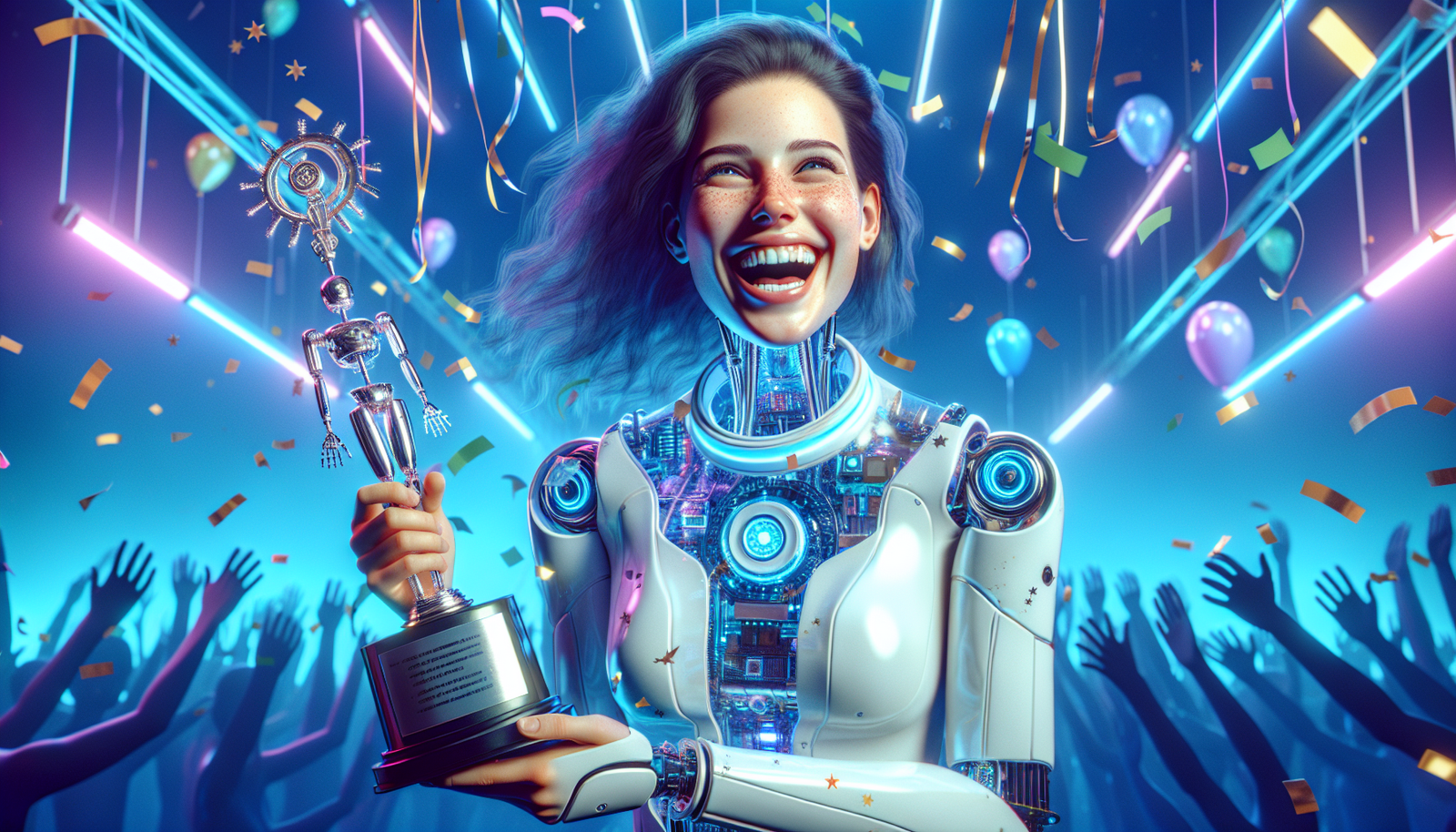Daniela Rus, co-recipient of the John Scott Prize
Daniela Rus, director of the Artificial Intelligence and Computer Science Laboratory at MIT, has been honored as a co-recipient of the prestigious John Scott Prize for the year 2024. Awarded by the board of City Trusts, this distinction recognizes outstanding contributions to scientific innovation.
A historic recognition
The John Scott Prize, established to honor the scientific legacy of Benjamin Franklin, is the first scientific award in the United States. The ceremony took place at a historic venue in Philadelphia, where the American Declaration of Independence was signed. This choice of venue emphasizes the enduring interconnection between scientific progress and human potential.
Revolutionary contributions to robotics
Rus has been recognized alongside professors Takeo Kanade from Carnegie Mellon University and Vijay Kumar from the University of Pennsylvania for their respective research. Daniela Rus’s work, focused on robotics, has transformed our understanding of autonomous machines. Her work expands the very definition of what a robot is.
A bold vision of intelligent machines
Her research goes beyond the traditional framework of robotics. Daniela Rus endeavors to develop a machine intelligence capable of interacting with the physical world through explainable algorithms. She aims to design robots as useful tools, collaborative partners capable of solving concrete challenges faced by humanity.
Reflections on her academic journey
During her speech, Rus reflected on her years as a master’s student. She highlighted that the key to intelligent machines lies in the harmony between body and mind. “The capabilities of a robot are defined by its physical body and the intelligence that animates it,” she stated. Her commitment to the evolution of mechanical and cognitive systems is palpable throughout her journey.
Iconic projects
Her projects illustrate her deep mission. The MiniSurgeon, a manageable origami robot, is designed to extract dangerous button batteries from children’s bodies. Soft robotic creatures, resembling fish and turtles, allow for exploration of marine depths. Additionally, modular robotic boats can reassemble into walkways, demonstrating adaptive intelligence.
More recently, Rus contributed to the creation of liquid neural networks, inspired by the nervous system of a tiny worm. By designing algorithms that operate with only 19 neurons, she demonstrates how machines navigate complex environments with remarkable efficiency.
Meaningful mentorship
Asked about her most significant work, Rus gave a clear answer, stating that it is not her metal robots that matter most to her. She values the students and researchers she has supported and mentored throughout her career. This testimony reflects her broader mission, which is to cultivate the next generation of brilliant minds.
A profound understanding of AI
Rus explained that the challenges in artificial intelligence and robotics require long-term thinking and unwavering commitment. A robot must not only perceive its environment but also understand it, make informed decisions, and interact constructively with humans and other robots.
A prestigious legacy
The John Scott Prize, beyond celebrating individual achievements, represents a crossroads where scientific exploration intertwines with compassionate innovation. The list of previous laureates includes iconic figures such as Thomas Edison, Nikola Tesla, Marie Curie, and many other recipients of the Nobel Prize.
Frequently Asked Questions about Daniela Rus and the John Scott Prize
What is the John Scott Prize?
The John Scott Prize is a prestigious award that recognizes scientific and technological innovation. It was established to honor the legacy of Benjamin Franklin and is awarded to researchers who have made a significant impact on scientific progress.
Why did Daniela Rus receive the John Scott Prize?
Daniela Rus was recognized for her outstanding contributions in the field of robotics and machine intelligence, particularly for her research that reinvents our understanding of robot capabilities.
Who else was awarded alongside Daniela Rus?
Alongside Daniela Rus, professors Takeo Kanade from Carnegie Mellon University and Vijay Kumar from the University of Pennsylvania were also co-recipients of the John Scott Prize in 2024.
How does Daniela Rus’s work influence the field of robotics?
Daniela Rus’s work opens new perspectives on how robots can become collaborative tools, capable of assisting humans by providing increased power, precision, and reach in various real-world challenges.
What impact has Daniela Rus’s research had on robotic systems?
Rus’s research enables the development of intelligent and explainable algorithms, evolving the way robots interact with the physical world and facilitating their integration into practical applications.
What types of projects has she developed that deserve mention?
Notable projects include the MiniSurgeon, a manageable origami robot designed to remove hazardous batteries from children, and soft robotic creatures, like fish, that allow for unprecedented aquatic exploration.
What is the significance of this award for the future of technology?
The John Scott Prize highlights the importance of scientific innovation and humanity in technological achievements, encouraging researchers to pursue innovative solutions that can transform society.
What message did Daniela Rus share in her speech during the award reception?
Rus spoke about the necessity of long-term thinking in the development of artificial intelligence and robots, emphasizing the importance of understanding and interacting with the world in a conscious and collaborative manner.






